Media coverage
Share

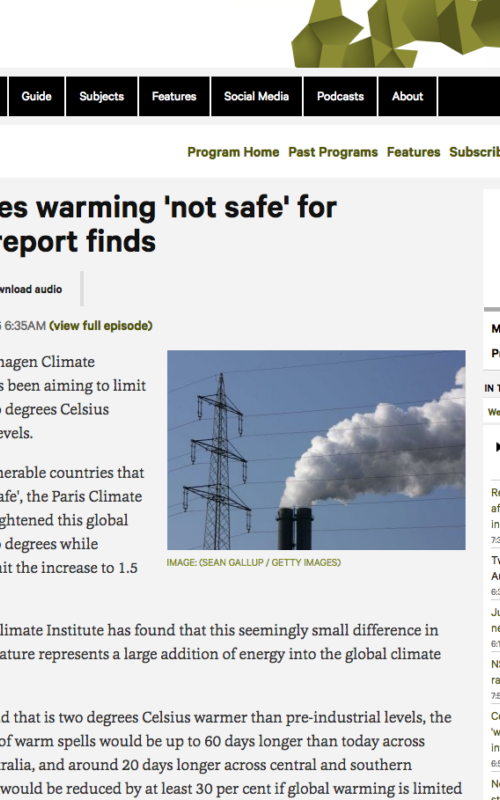
ABC Radio National
A new report for the Climate Institute has found significant differences between 1.5 and 2 degrees Celsius warming for Australia. Interview with Climate Analytics CEO and report author Bill Hare.
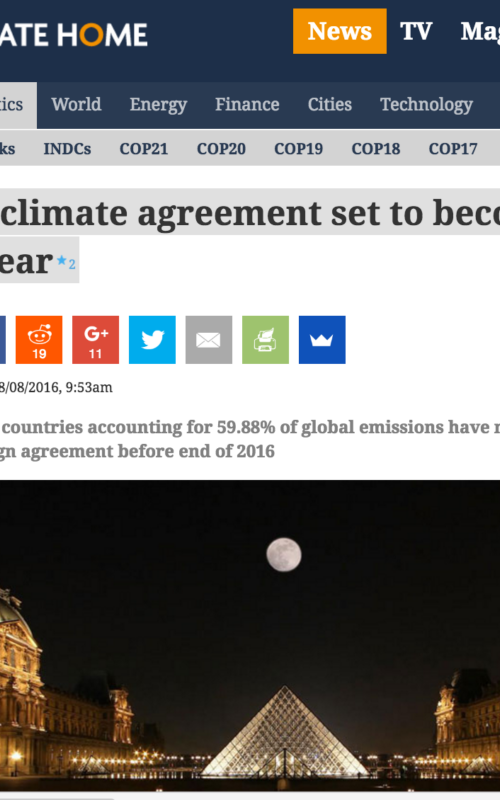
Climate Home
The Paris climate agreement will become international law by the end of 2016 if countries stick to the promises they have made. According to Climate Analytics, 57 countries have now indicated they will ratify or have already ratified the agreement by year’s end. They account for 59.88% of global emissions.
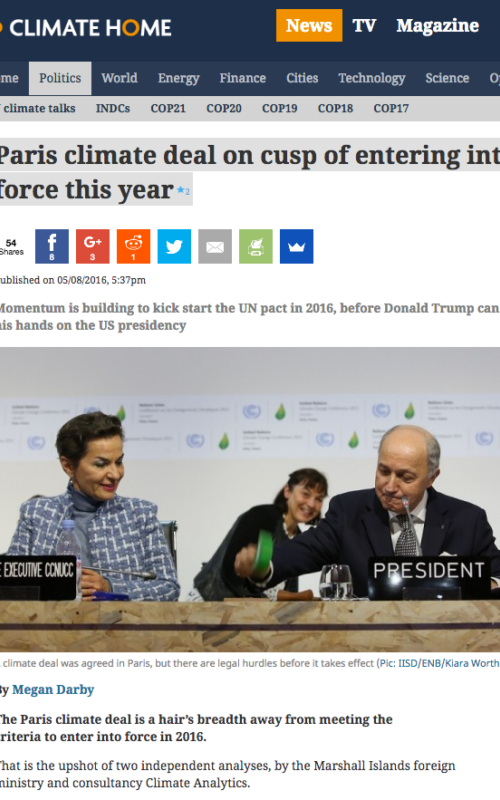
Climate Home
The Paris climate deal is a hair’s breadth away from meeting the criteria to enter into force in 2016. That is the upshot of two independent analyses, by the Marshall Islands foreign ministry and consultancy Climate Analytics.
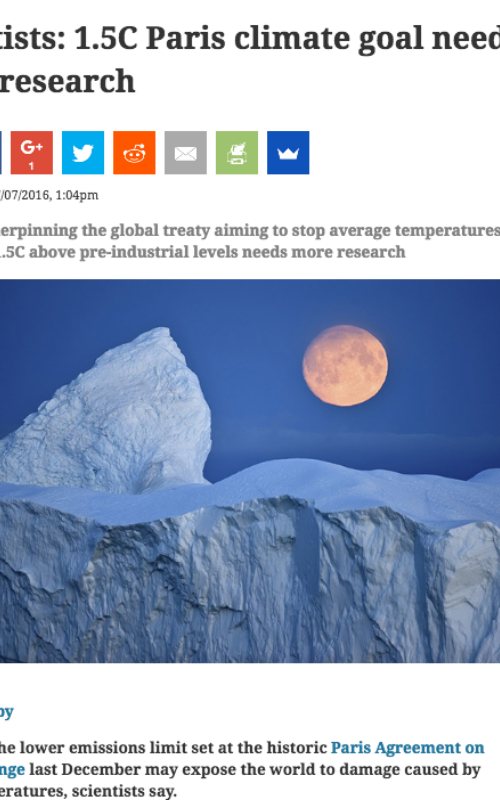
Climate Home
Science underpinning the global treaty aiming to stop average temperatures rising more than 1.5°C above pre-industrial levels needs more research. Climate News Network's Alex Kirby in Climate Home on our latest research around the 1.5˚C long term temperature limit.
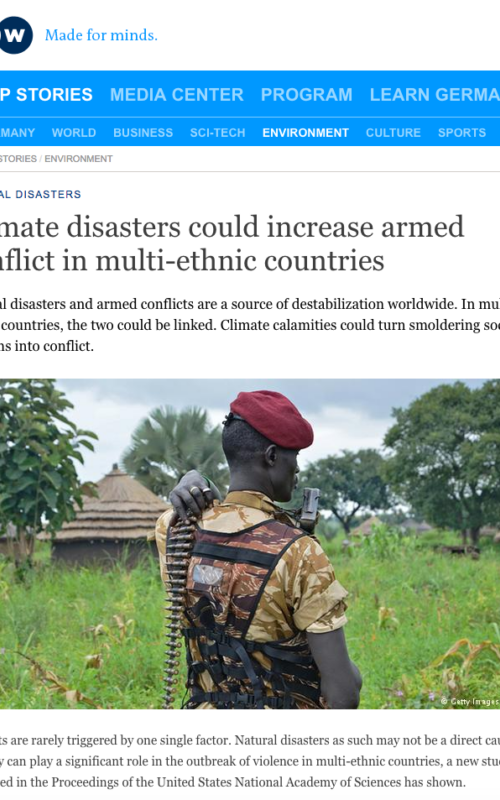
Deutsche Welle
Conflicts are rarely triggered by one single factor. Natural disasters as such may not be a direct cause, but they can play a significant role in the outbreak of violence in multi-ethnic countries, a new study led by Climate Analytics' Carl-Friedrich Schleussner found.
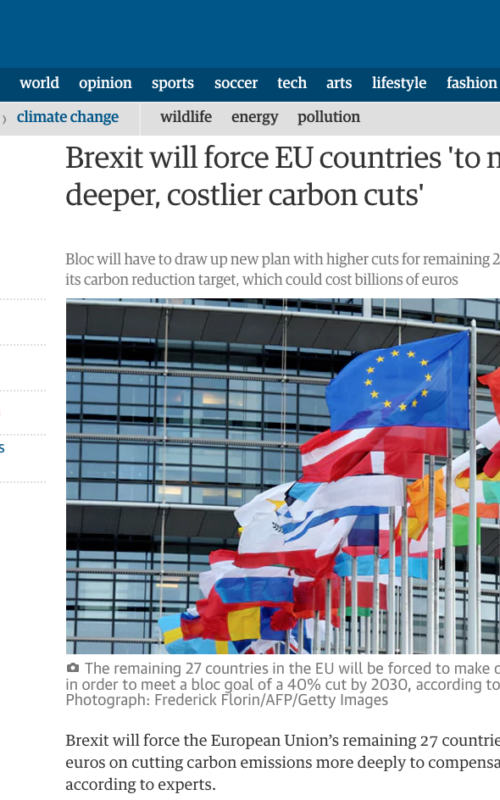
The Guardian
Climate Analytics' Bill Hare on Brexit: "If the UK completely separates from EU climate policies in every sense, there will be consequences. But if the EU and UK remain entangled in a constructive way, going forward with policies like the emissions trading system, then the differences may not be so extreme.”
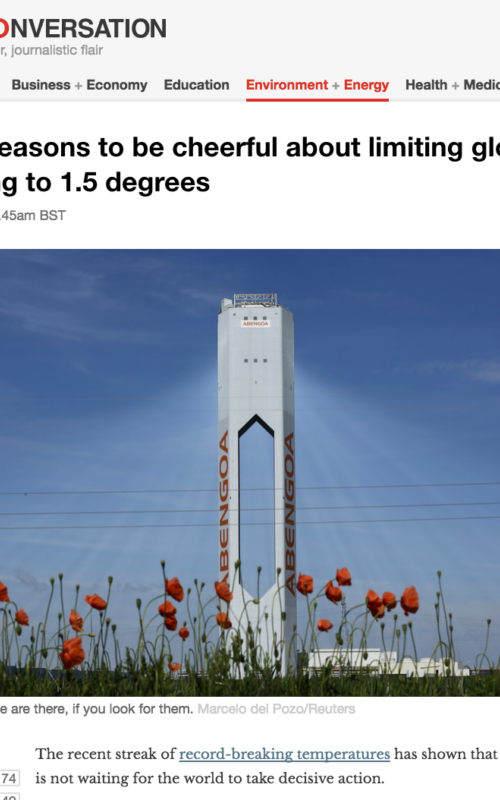
The Conversation
There can be no doubt that the window of opportunity to limit global warming to below 1.5℃, a key target of the 2015 Paris agreement, is closing fast. But there are encouraging signs around the world that this can still be done, even if there is still a very long way to go. Climate Analytics' Andrzej Ancygier and Bill Hare discuss three of the most positive developments that will help the world reach its target.
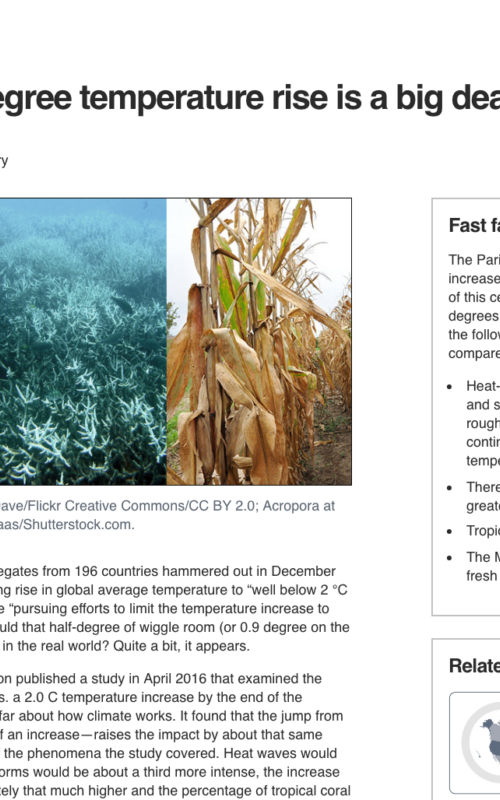
NASA Global Climate Change
How much difference could that half-degree of wiggle room (or 0.9 degree on the Fahrenheit scale) possibly make in the real world? Quite a bit, it appears. A feature article outlining the findings of a recent study by Climate Analytics' Dr Carl Schleussner on the differences in climate impacts between 1.5°C and 2°C warming.
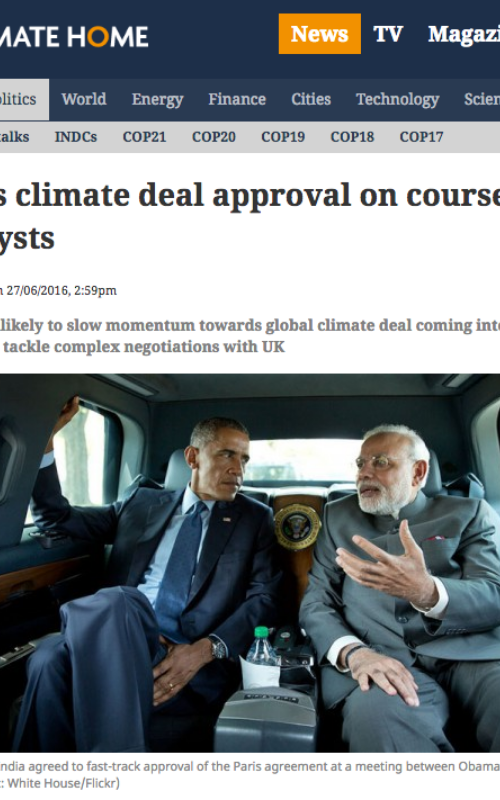
Climate Home
Brexit unlikely to slow momentum towards global climate deal coming into force, with EU left to tackle complex negotiations with UK. Under a scenario published by Climate Analytics, a global network of policy specialists, 50 countries covering 53.28% of global emissions are likely to sign off the UN pact by the end of 2016.
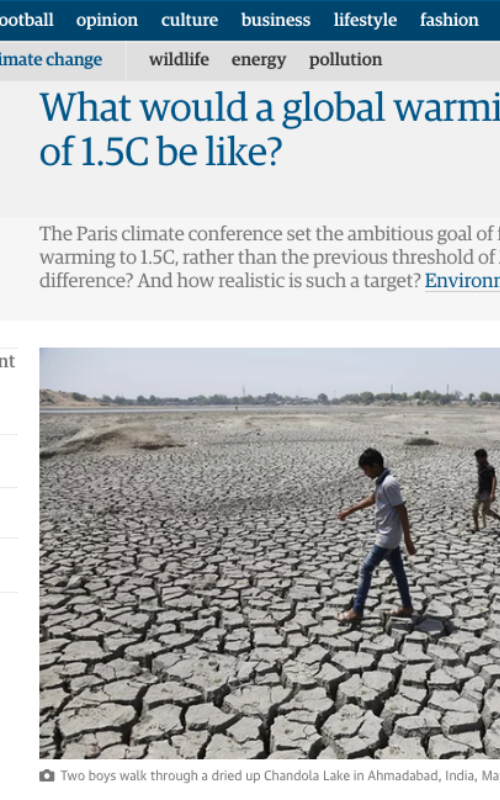
The Guardian
The Paris climate conference set the ambitious goal of finding ways to limit global warming to 1.5C, rather than the previous threshold of 2C. But what would be the difference? And how realistic is such a target? Article quoting research by Climate Analytics' Michiel Schaeffer and Carl-Friedrich Schleussner.